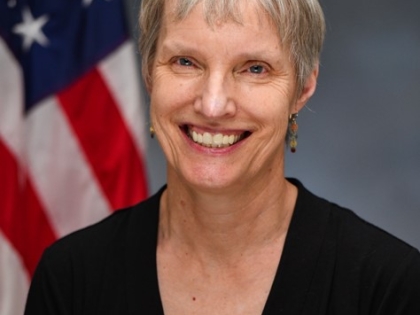
Senator May commemorates the 250th anniversary of the Battles of Lexington and Concord and recognizes its impact on New York State
In the early hours of the night, a Boston silversmith named Paul Revere, joined by William Dawes, and Samuel Prescott, rode out northwest from Boston to warn the people of the countryside that the British Army was on the march.
At 5 in the morning, the column of Redcoats reached the town of Lexington, and there was a skirmish on the town green that left nine people dead.
At 8 am, the soldiers reached the town of Concord. At the bridge over the Concord River, they found 400 armed Minute Men waiting for them. The colonists opened fire and drove the British soldiers into retreat.
Boston poet Henry Wadsworth Longfellow famously described this scene:
By the rude bridge that arched the flood
Its flag to April’s breeze unfurl’d
Where once the embattled farmer stood
And fired the shot heard round the world.
Word of these battles took 3 days to reach NY. When it did, the news had a seismic effect.
NY had been the lone holdout among the 13 colonies when it came to opposing British rule. The NY General Assembly had not agreed to the conclusions of the first Continental Congress and did not want to send delegates to the Second.
Word of the rout of British soldiers in Concord galvanized the opposition to the British in New York. Many in the city rushed to join or form militias; students from Kings College, including Alexander Hamilton, joined a militia called the Hearts of Oak.
Within a few weeks, the New York Provincial Congress was formed as a pro-independence alternative to the New York General Assembly.
One hundred prominent New Yorkers signed a document seeking “the salvation of the Rights and Liberties of America,” and soon, New York was at the center of a full-blown war for American Independence. The map of our state is inscribed with the names of those who signed that document or fought bravely in the war, names like Sackett, DeLancey, Van Cortlandt, Tappen, Hamilton, Herkimer, and van Rensselaer.
I grew up in Lexington, MA, just a stone’s throw from what is now known as the Battle Green. In school, we memorized Longfellow’s poem, and every year, we celebrated April 19 as a state holiday known as Patriots Day.
We called those early rebels against British rule Patriots, not because they quixotically stood up to a global superpower. Not even because they opposed an aging, addled despot, propped up by fabulous wealth, who believed God had ordained him to rule over 1/3 of the globe.
The real reason we celebrated them as Patriots was because of what they were fighting for: to stop being subjects and instead become citizens of a citizen-led country governed by the rule of law.
The framers of the Constitution never mentioned patriots or patriotism in that document, but they made clear that a citizen-led democracy required citizen-patriots to make, improve, and uphold the laws. They provided in the constitution for citizens to vote, serve on juries, run for office, and hold elected officials accountable.
But there are other unwritten expectations of citizen-patriots in a democracy. We are expected to accept the verdict of a jury or judge or the outcome of an election, even if it didn’t go our way. We are expected to tolerate freedom of speech, freedom of religion, or freedom of the press, even if we strongly disagree with what is being written or professed.
It is this kind of patriotism that is most under threat in America today. We keep hearing from the very highest levels of our government that following a judge’s order or accepting defeat in an election are somehow signs of weakness when, in fact, they are signs of respect for the democratic process and for our country. They are the keystones that allow the soaring edifice of our democracy to stay standing.
As we mark the 250th anniversary of the first Patriots Day and honor those first American patriots, I hope we can recommit ourselves to the kind of patriotism that makes it possible for us to remain citizens and not become subjects.